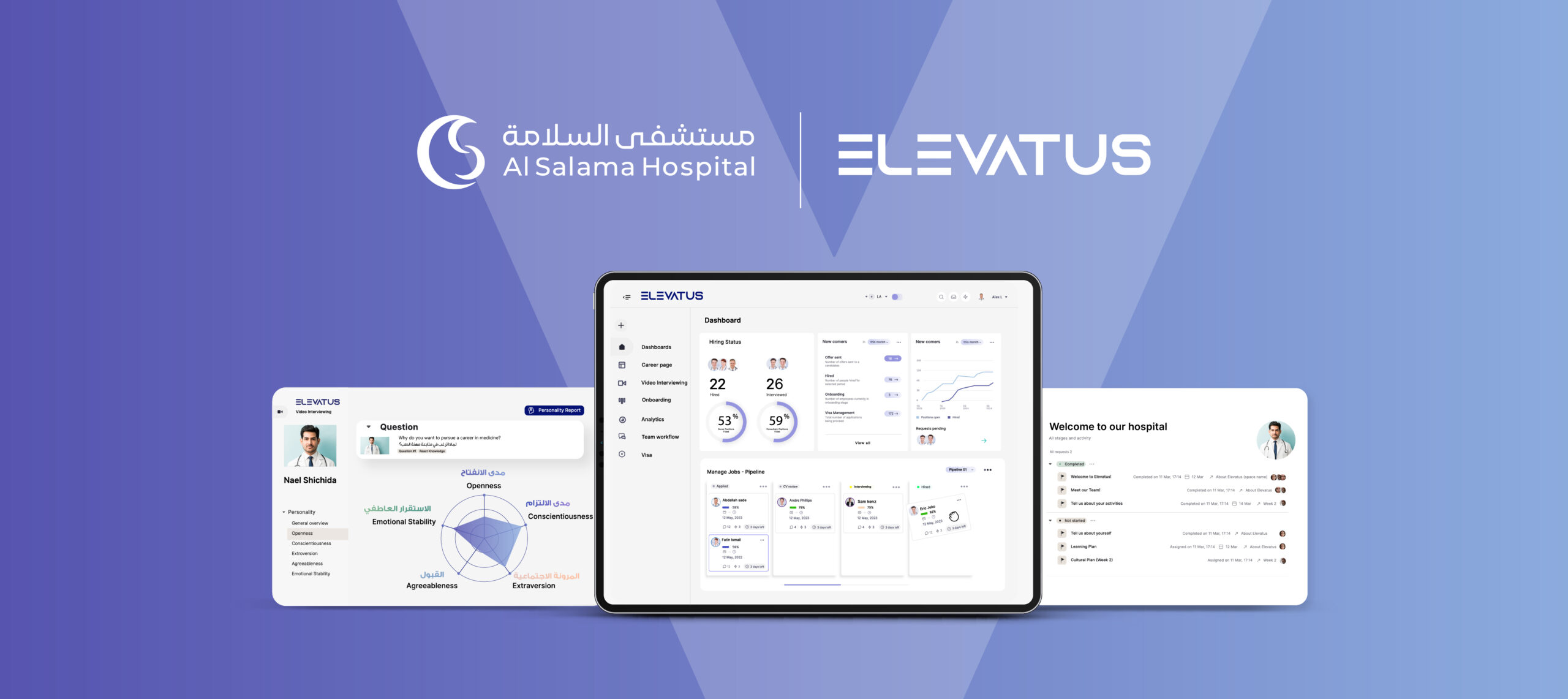
General
2024’s Guide to Winning Over and Recruiting Gen Z Talent: Top Strategies & Trends
February 8, 2024



Kiran Kazim
Content Writer
It’s that feeling again.
You’ve posted the job listings, and fine-tuned the descriptions, and yet, the influx of applications from Gen Z candidates is underwhelming, or worse, filled with mismatched expectations. You feel like you’re speaking a different language, trying to connect with a generation that seems to operate on an entirely different wavelength. The methods that worked so well with Millennials are falling flat, leaving you questioning your strategies.
As a seasoned recruiter, you should be nailing this, right?
But pause for a moment. Perhaps you’re being too hard on yourself. The digital-first, value-driven, and rapidly evolving landscape of Gen Z is unlike anything we’ve faced before. It’s not just about attracting them; it’s about speaking their language, aligning with their values, and offering the flexibility and growth they crave.
Before you let frustration take over, consider this: maybe what you need are new tools in your recruitment toolbox, strategies that resonate with this unique and vibrant generation.
In this blog, we will explore the unique challenges of engaging and recruiting Gen Z talent and provide a comprehensive guide to the most effective strategies and modern practices for successful recruitment in 2024.
You’re not just filling positions; you’re shaping the future workforce. Let’s dive into how to recruit Generation Z effectively, with a fresh perspective.
Get your job in front of millions of candidates
Post your jobs on 2000 job boards, get job board recommendations, and source at the speed of light with EVA-REC, the world’s leading ATS.
Request a demoTable of Contents
Generation Z Leading the Charge in the Future Workforce


Generation Z has come across as a powerful and influential group in the world of work, bringing fresh perspectives and skills to the table. Born between 1997 and 2012, this generation stands out for their natural ease with digital technology, a trait ingrained from growing up in a world where tech is a regular part of daily life. Their knack for digital savvy really makes them stand out from millennials and the older crowd, giving them a unique edge in quickly adapting to the latest tech trends.
More than just tech experts, Gen Z also places a high value on flexibility in the workplace. They emphasize the importance of work-life balance more than any previous generation. This preference reflects a broader move towards more flexible and dynamic working environments, aligning with the increasing shift towards remote and hybrid work models, a trend that has gained even more traction following recent global developments.
Distinct from their millennial predecessors, financial incentives and career progression are more influential for Gen Z. Over half of Gen Z learners (59%) are motivated to acquire professional skills primarily to increase their earning potential, indicating a shift in priorities where monetary reward and career advancement are key factors in their professional development and choices.
More importantly, Gen Z’s outlook on the workplace is heavily influenced by their strong commitment to diversity and inclusion. This generation seeks employers who not only talk about these values but actively incorporate them into their company culture and policies. They are also more likely to prioritize social and environmental responsibility in their employment choices, seeking out organizations that align with their personal values.
This generation’s approach to careers and the job market is marked by their desire for meaningful work and opportunities for personal and professional growth. They are not just looking for a job; they are looking for a place where they can make a difference and grow. This mindset requires a shift in how organizations approach recruiting Gen Z, focusing not just on the job role but on the broader experience and development opportunities offered.
Insight into the Minds of the Digital-First Workforce


The forward-thinking mindset of Generation Z, along with Millennials, is evident in their work arrangement preferences. According to Deloitte’s survey, which gathered responses from 23,220 participants across 46 countries, a significant majority, 75% of Gen Zs and 76% of Millennials, express a preference for hybrid or remote work arrangements. This inclination towards flexible working models highlights a shift in workplace dynamics, aligning with Gen Z’s and Millennials’ desire for a better work-life balance and a work environment that suits their digital-centric lifestyle.
In contrast, only a smaller fraction, 19% of Gen Zs and 20% of Millennials, show a preference for a permanently in-office work setting, underscoring the growing trend towards more adaptable and remote-friendly workplaces. This data not only reflects their adaptation to contemporary work cultures but also signifies a broader change in professional environments and expectations.
It becomes clear that Gen Z represents a unique mixture of traits, values, and expectations that are actively reshaping the modern workforce. Born and raised in a digital and fast-paced era, their approach to both life and work is distinctively contemporary and progressive. Let’s explore their traits in detail.
Traits, Values, and Expectations Shaping the New Workforce
Generation Z candidates have a unique blend of characteristics that set them apart. They are the first to have grown up completely immersed in a digital environment, giving them an intuitive grasp of technology that goes beyond mere skill. This digital fluency shapes their worldview and their approach to work, making them exceptionally adept at navigating and adapting to new technological trends. Their comfort with digital tools and platforms isn’t just a professional asset; it’s a fundamental part of how they interact with the world, making them incredibly versatile and quick learners.
But Gen Z’s influence extends beyond their tech-savvy nature. Their values are deeply ingrained in authenticity, diversity, and social responsibility. This generation isn’t content with surface-level commitments to these ideals; they seek out employers whose actions reflect these values in tangible ways. Workplaces that foster a genuine culture of inclusivity, celebrate diverse perspectives, and demonstrate a commitment to social and environmental responsibility resonate strongly with them.
When it comes to what Gen Z looks for in their careers, it’s clear they want more than just financial compensation. Meaningful work that aligns with their personal values and offers a sense of purpose is a major draw. They are ambitious, and looking for opportunities that offer clear career progression and personal growth. This generation values constructive feedback and open communication, preferring workplaces that provide regular and transparent dialogue with their leaders and peers. Their preference for this level of communication and feedback stems from a desire to continuously improve and understand how their role fits into the larger organizational picture.
Digital Imprint on Career Aspirations
The digital era has not only shaped Generation Z’s lifestyles but also profoundly influenced their career trajectories. Raised in a whirlwind of technological innovation and social media, this generation has developed a unique lens through which they view their professional lives. Their innate inclination towards industries buzzing with tech advancements and social innovation is no coincidence; it’s a direct result of their digitally-enriched upbringing. This exposure has refined their preference for careers that are not just jobs, but platforms for change and innovation.
In this information-saturated age, Gen Z has prioritized efficiency and speed. This isn’t limited to their communication style; it permeates their decision-making processes, including their career choices. They are adept at quickly assimilating information and making informed decisions, a trait that is invaluable today.
Moving on, growing up in a globally connected world has given Generation Z a distinctively international outlook. They are not just seeking jobs; they are looking for experiences that transcend geographical and cultural boundaries. This global perspective makes them ideal candidates for roles in diverse settings, be it innovative startups, purpose-driven nonprofits, or multinational corporations. They thrive in environments that offer a mix of cultural exchange and global impact, reflecting a desire to be part of a larger narrative that shapes the world.
And that is why Gen Z’s career choices are a mosaic of their digital roots and their ambition to effectuate meaningful change. This generation is not just working for a living; they are working to redefine what living means in a hyper-connected world.
Key Trends Transforming Talent Acquisition For Recruiting Gen Z in 2024


Understanding and adapting to the latest Gen Z recruiting trends is essential for employers aiming to attract and retain this influential and dynamic generation. This year, it’s evident that these trends are significantly influenced by Gen Z’s distinct preferences and behaviors, offering a clear insight into the future of recruitment.
A key aspect in this context is the importance of diversity, equity, and inclusion (DEI) in the workplace. According to research by Eagle Hill Consulting, 53% of U.S. workers consider DEI a crucial factor when evaluating potential employers. This emphasis on DEI is even more pronounced among younger workers, with a striking 77% of Gen Z emphasizing its importance. This statistic underscores the growing expectation for companies to not only advocate for but actively implement DEI initiatives.
For Gen Z, a company’s commitment to these values is not just desirable but often a deciding factor in their employment choices. Moving forward, integrating these values into the core of company culture and recruitment strategies becomes not just beneficial but imperative in aligning with the expectations and priorities of the upcoming workforce. Let’s further explore the trends of this generation for recruitment.
The Power of Digital and Social Media in Attracting and Recruiting Gen Z
In 2024, digital and social media-driven recruitment has become more than just a trend; it’s an essential strategy for engaging Gen Z candidates. This generation, having grown up in a digital-first world, is most responsive to recruitment efforts that meet them where they are – on social media platforms and digital spaces.
Companies are leveraging platforms like Instagram, LinkedIn, and even TikTok to showcase their culture, advertise job openings, and engage with potential candidates. This approach is not just about posting job ads but creating content that resonates with Gen Z’s values and interests, such as company culture highlights, employee testimonials, and insights into day-to-day operations.
Recruit top talent in local languages
Expand your reach, grow your talent pool and target new markets by recruiting in multiple languages. Create fully localized experiences — from job requisition to job offer — in 9 languages.
Request a demoSpotlight on Company Values and Social Responsibility
Gen Z’s strong inclination towards companies that demonstrate a commitment to social responsibility has led to an increased emphasis on company values in recruitment strategies. This generation looks for employers whose values align with their own, particularly in areas of sustainability, diversity, and community engagement.
Companies are responding by making their values and social responsibility initiatives a central part of their recruitment messaging, showcasing their efforts in creating a positive impact on society and the environment.
Adapting to the New Era
The demand for flexible work arrangements is a trend that has grown exponentially with the rise of Gen Z recruiting in the workforce. This generation values work-life balance and the freedom to work in a way that suits their lifestyle.
Employers are adapting by offering flexible hours, remote working options, and hybrid models that combine in-office and remote work. This flexibility is not just a perk but a key factor in attracting and retaining Gen Z talent, who view it as essential to their productivity and overall job satisfaction.
The Rise of Personalization in Recruitment
Personalization has become a key aspect of recruitment, especially when targeting Gen Z. This generation appreciates a recruitment process that acknowledges their individuality and aspirations.
More specifically, tailored communication, personalized career path discussions, and acknowledgment of their unique skills and experiences during the recruitment process make them feel valued and seen as more than just another candidate. This approach requires a deeper understanding of candidates’ profiles and aspirations, enabling a more meaningful and engaging recruitment experience.
Crafting Interactive and Engaging Processes
Interactive and engaging recruitment processes are increasingly popular among Gen Z candidates. They prefer recruitment experiences that are dynamic and offer a glimpse into the actual work environment. This includes virtual reality (VR) office tours, gamified assessments, and real-life project simulations. These methods make the recruitment process more engaging and also provide candidates with a better understanding of the job and the company culture.
Mental Health and Wellbeing
The focus on mental health and wellbeing in the workplace has gained significant traction and is a key factor in Gen Z’s choice of employer.
Gen Z candidates are looking for employers who prioritize mental health and provide support through initiatives like counselling services, mental health days, and a culture that encourages open discussions about mental well-being. This trend reflects a broader shift towards a more holistic approach to employee wellbeing in the workplace.
Emphasizing Rapid and Transparent Communication
Rapid and transparent communication throughout the recruitment process is highly valued by Gen Z. This generation appreciates quick responses, clear timelines, and openness about the recruitment stages.
Employers are adopting tools and practices that enable faster communication, such as AI-driven chatbots for initial inquiries and mobile-optimized application processes. Transparency in communication builds trust and keeps candidates engaged and informed throughout the process.
Valuing Skills and Potential Over Degrees
There’s a growing trend towards valuing skills and potential over formal degrees in Gen Z recruitment. Employers are recognizing that traditional education paths are the indicators of a candidate’s ability to succeed.
Skills-based hiring focuses on the practical skills and potential for growth, offering opportunities to a broader range of candidates and aligning more closely with Gen Z’s diverse and often non-linear educational backgrounds.
Mastering the Art of Attracting Generation Z Talent


Recruiting Generation Z demands a different approach that aligns with their unique characteristics and expectations. As they join the workforce, their impact significantly reshapes traditional recruitment strategies. Employers keen on attracting and retaining Gen Z talent must tune into their specific preferences and values. This means understanding how Gen Z is redefining the role of work in their lives.
While a notable portion, 49% of Gen Z and 62% of Millennials, view work as a central part of their identity, there’s an increasing emphasis on achieving a healthy work-life balance. This balance isn’t just a desire; it’s a priority. It stands as the most admired trait in their peers and the foremost factor in choosing a new employer.
Thus, for successful recruitment, employers must recognize and integrate this shift towards work-life balance into their strategies, appealing to a generation that values both their professional role and personal well-being equally. This understanding is crucial in tailoring recruitment efforts that resonate with Gen Z’s digital savviness and their drive for a balanced, fulfilling life. Let’s figure out how to recruit Gen Z’s!
Crafting a Future-Forward Workplace
To attract Gen Z talent, offering flexibility and growth opportunities is not just a perk—it’s a necessity. This generation has redefined what a healthy work-life balance should look like. They are not just seeking jobs; they’re seeking lifestyles. Flexible working hours, the ability to work remotely, or a hybrid model that blends in-office and remote work are not just attractive but often expected. Such arrangements demonstrate an employer’s commitment to accommodating different working styles and life commitments, making the company more appealing to Gen Z candidates.
Besides, Gen Z’s career ambitions extend beyond traditional job roles. They are a generation of learners, innovators, and achievers. They seek environments where they can continuously develop both professionally and personally. Companies that offer clear paths for career advancement, opportunities for skill development, and educational resources will stand out. Gen Z appreciates employers who invest in their growth, seeing it as a sign of long-term commitment and support.
Regular, constructive feedback is another critical element. This generation thrives on open communication and continuous improvement. Constructive feedback sessions, mentorship programs, and regular check-ins can foster a culture of growth and learning.
By creating an environment that prioritizes flexibility, personal growth, and professional development, employers can attract Gen Z talent and inspire their loyalty and commitment. This approach aligns with Gen Z’s dynamic outlook on work and life, setting the stage for a mutually beneficial and forward-thinking workplace.
Showcasing Company Culture and Values to Engage Gen Z
For Generation Z, what makes a job truly appealing is how closely a company’s culture and core values align with their own. This discerning generation places great emphasis on the way a company showcases its culture and values, whether through its website, social media presence, or during the recruitment process. This can significantly sway Gen Z’s decision to apply for or accept a position.
Gen Z candidates are seeking more than just verbal assurances or surface-level declarations of values. They want to see tangible, actionable examples of how a company’s professed values translate into real-world practices. This could mean highlighting initiatives that promote environmental sustainability, showcasing diversity and inclusivity in the workplace, or illustrating the company’s involvement in community projects.
By effectively communicating a strong, positive company culture and a genuine commitment to values that resonate with Gen Z, employers can distinguish themselves in a crowded job market. This generation is looking for workplaces where they can contribute their skills and align their personal beliefs with their professional lives. In this context, a company’s ability to demonstrate its commitment to social responsibility, diversity, and a positive working environment is not just a recruitment strategy, but a fundamental aspect of its identity that appeals to Gen Z job seekers.
Embracing Innovative Techniques for Generation Z Recruiting
Implementing innovative recruitment methods has become a key strategy in attracting the attention of Gen Z candidates. This generation responds positively to modern and unconventional approaches in recruitment. Gamified assessments, for instance, offer a fun yet insightful way to evaluate skills and capabilities, turning the often mundane task of skill assessment into an enjoyable experience. These interactive elements not only break the ice but also provide valuable insights into a candidate’s problem-solving and critical-thinking abilities.
Virtual Reality (VR) tours are another innovative method gaining traction. They allow candidates to immerse themselves in the workplace environment virtually, offering a realistic glimpse of the company culture and workspace without the need for physical presence. This is particularly appealing to Gen Z candidates who value authenticity and seek a deeper understanding of their potential workplace.
Interactive job simulations go a step further, allowing candidates to ‘test-drive’ the role. They provide a hands-on experience of what the day-to-day tasks and challenges in the role might be like, which is invaluable for both the employer and the candidate in assessing fit.
These innovative recruitment methods convey a message to Gen Z candidates that the company is forward-thinking, embraces technology, and values an engaging candidate experience. Such practices align well with Gen Z’s expectations and mindset, setting the stage for a mutually beneficial relationship between the employer and the future employees.
Taking Charge of the Modern Recruitment Tools
This digitally adept generation expects a recruitment process that reflects their tech-savvy nature. Embracing social media platforms not only for branding but also for active recruitment taps into their daily digital habits. Whether it’s LinkedIn for professional connections, Instagram for culture showcases, or even newer platforms where Gen Z spends their time, each serves as a vital touchpoint in reaching out to potential candidates.
A mobile-friendly application process is another critical aspect. Gen Z lives on their smartphones, and a recruitment process that is not optimized for mobile is likely to see a high drop-off rate. This generation values efficiency and ease of access, and a cumbersome application process is a surefire way to deter them.
Incorporating AI-driven tools for initial screenings and chatbots for real-time queries can significantly enhance the efficiency and responsiveness of the recruitment process. These tools cater to Gen Z’s preference for quick and efficient interactions and also streamline the recruitment process, freeing up human resources to focus on more strategic aspects. By integrating these modern tools and technologies, companies can create a recruitment process that is not only efficient and effective but also resonates with the digital-first mindset of Generation Z.
Hire with brainpower, not manpower
From job posting to onboarding – see how our next-gen ATS can help you streamline your recruitment process through AI and automation.
Request a demoArt of Branding for Gen Z
Employer branding stands as a cornerstone to attract the Gen Z workforce. It’s about painting a picture of your company as a desirable place to work, one that resonates with the values and aspirations of this new generation. Gen Z candidates are in search of authenticity and transparency. They want to know the real story behind a company’s glossy exterior. By sharing genuine experiences and testimonials from current employees, particularly those belonging to Gen Z, employers can provide authentic insight into the company culture and everyday work life.
This generation is also invested in what a company stands for. Showcasing your involvement in community projects, your commitment to employee well-being, and the opportunities you offer for career growth and development can significantly bolster your appeal to Gen Z candidates. These are not just perks or policies for them; they are indicators of a company’s character and its alignment with their personal values and professional goals.
And that is why employer branding goes beyond just selling a job; it’s about presenting a comprehensive view of what it means to be part of your organization. It’s about illustrating how an employee’s work and life can intertwine with the company’s mission and values, creating a compelling narrative that Gen Z finds irresistible. A strong employer brand can be the deciding factor for Gen Z candidates choosing where to start or continue their careers.
For example, EVA-REC is the #1 award-winning talent acquisition software trusted globally, designed to streamline the entire hiring process – from acquire to hire. It automates time-consuming tasks such as resume filtering and interview scheduling, and enables efficient team collaboration and candidate evaluation through advanced analytics, all while showcasing your incredible employer brand.
With EVA-REC, you can create a branded career page that truly reflects your employer brand and converts. Imagine a career page that showcases your awesome culture and uses dynamic blocks for easy customization. With EVA-REC, you can drag and drop personalized content, giving candidates a behind-the-scenes look at what it’s like to work with your company through team testimonials, perks & benefits, pictures, and videos. This hands-on approach helps in vividly illustrating how an employee’s work and life can intertwine with your company’s mission and values, crafting a compelling narrative that Gen Z finds irresistible.
Moreover, EVA-REC enables you to build and launch your career page from scratch in minutes, not days, perfectly matching your brand identity without needing to write a single line of code. By leveraging EVA-REC’s advanced features, you can effectively communicate your involvement in community projects, your commitment to employee well-being, and the opportunities you offer for career growth and development, significantly bolstering your appeal to Gen Z candidates.
Striking the Perfect Blend Where Tech Innovation Meets Personal Touch in Gen Z Recruitment


Striking a balance between technological innovation and a personal touch is vital for recruiting Gen Z. This generation, tech-savvy yet yearning for meaningful connections, demands a recruitment approach that harmonizes digital efficiency with human-centered engagement. Here’s how employers can master this blend:
- Digital First Impressions
Gen Z lives in a digital world, and their first interaction with a potential employer often happens online. Employers should leverage this by ensuring their digital presence, from the company website to social media platforms, is engaging, informative, and reflective of the company culture. However, this digital outreach should feel personal and authentic, not just a showcase of corporate achievements.
- Tech-Driven Efficiency
Utilizing technology to streamline the recruitment process is vital. AI for resume screening, chatbots for initial queries, and digital assessments can save time for both recruiters and candidates. But these tools must be used to enhance the process, not replace the human element. They should free up time for recruiters to engage in more meaningful interactions with candidates.
- Personalized Communication
While digital tools handle the logistics, personal communication is important for making candidates feel valued. Personalized emails, phone calls, and even video interviews can create a connection that feels genuine. Recruiters should aim to understand each candidate’s aspirations and concerns, tailoring their communication to address these needs.
- Engaging and Interactive Interviews
The interview process should be more than a Q&A session. Using interactive elements like job simulations or practical tasks can give candidates a real taste of the job while making the experience more engaging. Follow-up interviews or discussions can be more personalized, discussing the candidate’s performance in these tasks and how they see themselves fitting into the role and the company.
- Feedback and Follow-Up
Gen Z appreciates transparency and feedback. Providing candidates with constructive feedback after interviews and keeping them informed about their application status helps build trust. Even if a candidate isn’t selected, a positive recruitment experience can leave them with a good impression of the company, potentially leading them to reapply in the future or recommend the company to peers.
- Fostering a Sense of Community
Inviting candidates to company events or connecting them with potential future colleagues can foster a sense of belonging. This can be especially effective for roles that require teamwork and collaboration, as it gives candidates a glimpse of the company culture and team dynamics.
- Continuous Improvement
Gathering feedback from candidates about their experience in the recruitment process and continuously improving based on this feedback is essential. This shows that the company values candidates’ opinions and is committed to making the recruitment process as efficient and pleasant as possible.
Final Thoughts


To effectively recruit Gen Z in 2024, it’s essential to embrace their digital fluency, value alignment, and desire for flexibility. By adapting to these key trends with authenticity and forward-thinking strategies, organizations can not only attract but also retain this dynamic new wave of talent.
Looking to master recruiting Gen Z in 2024? Explore how EVA-REC can tailor talent acquisition to meet the unique needs of your company and attract top young talent.
EVA-REC is a globally recognized and award-winning talent acquisition software that empowers companies around the world to source, attract, and hire top talent efficiently and at scale. With EVA-REC you can create modern career pages that effectively convert, integrate seamlessly with leading technology providers, and effortlessly post jobs across 2,000+ global job boards. It enables you to filter resumes quickly, rank candidates by qualifications, and collaborate smoothly with your team members – all within a single, integrated platform. Request for a free demo today!
Frequently Asked Questions


What motivates Generation Z in their career choices?
Generation Z is motivated by opportunities for personal and professional growth, work that aligns with their values, especially in sustainability and social responsibility, a strong emphasis on work-life balance, and workplaces that offer flexibility and technological integration.
How does recruiting Gen Z differ from recruiting millennials?
Recruiting Gen Z focuses more on digital and social media engagement, values transparency and rapid communication, and emphasizes flexibility and mental health. Millennials, while also tech-savvy, place more emphasis on collaborative work environments and career development opportunities. Gen Z also values authenticity and social responsibility more strongly.
What are the best practices for onboarding Gen Z employees?
Best practices include creating a tech-friendly onboarding process, offering mentorship and continuous learning opportunities, emphasizing company culture and values from the start, providing clear and structured career progression paths, and fostering an inclusive environment that encourages open communication and feedback.
Turn top talent to employees fast
Hire, assess, onboard and manage top talent for every job. See how Elevatus streamlines everything; from acquire to new hire.
Request a demoAuthor



Kiran Kazim
Don't miss a thing!
Stay one step ahead. Subscribe and get the latest updates, news, and insights from Elevatus straight to your inbox.






